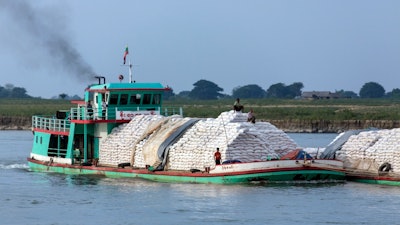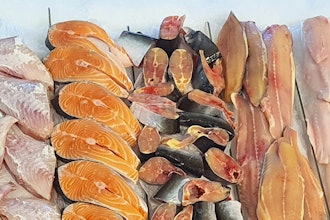
WASHINGTON – Agriculture Secretary Tom Vilsack announced next steps in the U.S. Department of Agriculture’s efforts to bolster U.S. agricultural trade, including the department’s planned trade missions for 2024 and the opening of a public comment period for the new Regional Agricultural Promotion Program (RAPP).
These efforts will help to support further growth in U.S. agricultural exports and introduce high-quality U.S. agricultural products to new markets.
“Market diversification is an important tool for maximizing growth opportunities for U.S. agriculture, as well as hedging the risk of market contraction and general volatility in the global marketplace,” said Vilsack. “USDA is committed to promoting export opportunities in non-traditional markets and ensuring that U.S. agricultural commodities and products are available to diverse consumer groups around the world.”
In October, Secretary Vilsack announced that USDA will use $1.3 billion from the Commodity Credit Corporation funds to establish RAPP, to bolster and diversify U.S. agricultural export opportunities, and strengthen support for specialty crop industries. This investment will enable American exporters to enter new markets and expand market share in current and growth markets. On Nov. 17, USDA will publish regulations for RAPP, which will be open for public comment for 30 days.
U.S. agricultural exports totaled a record $196 billion in 2022, following a record setting year in 2021. USDA export promotion programs support efforts to continue market expansion for U.S. food and agricultural products. These programs are just one tool that USDA utilizes to ensure market access. The Department has tallied numerous trade policy wins during the Biden-Harris Administration that provided new opportunities for U.S. farmers and ranchers, including:
- Vietnam opening its market for U.S. grapefruit exporters;
- India dropping the retaliatory tariffs on apples, chickpeas, lentils, almonds and walnuts. The Indian government also reduced tariffs for turkey, duck, blueberries and cranberries;
- Canada approving legislative recognition of U.S. biofuels, maintaining the largest and most dependable export market for U.S. ethanol and biodiesel;
- Mexico granting market access to U.S. potatoes following more than 20 years of engagement;
- Japan renegotiating beef safeguard levels under the U.S.-Japan Trade Agreement, reducing tariffs and generating growth opportunities for $150 million in beef exports; and,
- Brazil agreeing not to change import certification requirements, ensuring continued exports of U.S. milk, beef, and seafood to this important market.
USDA plans to build on these successes and highlight export opportunities in additional markets through a robust agribusiness trade mission schedule next year. USDA will lead trade missions to the following markets in 2024:
- Seoul, Korea – Week of March 25, 2024
- New Delhi, India – Week of April 22, 2024
- Vancouver, Canada – Week of June 17, 2024
- Bogota, Colombia – Week of July 29, 2024
- Hanoi and Ho Chi Minh City, Vietnam (with buyers from Thailand) – Week of September 9, 2024
- Casablanca, Morocco (with buyers from Senegal and Francophone West Africa) – Week of December 2, 2024






















